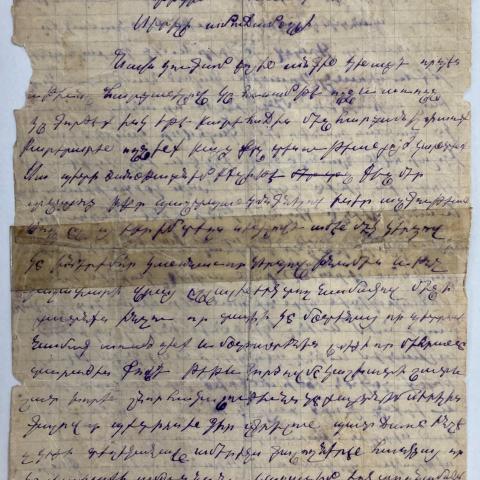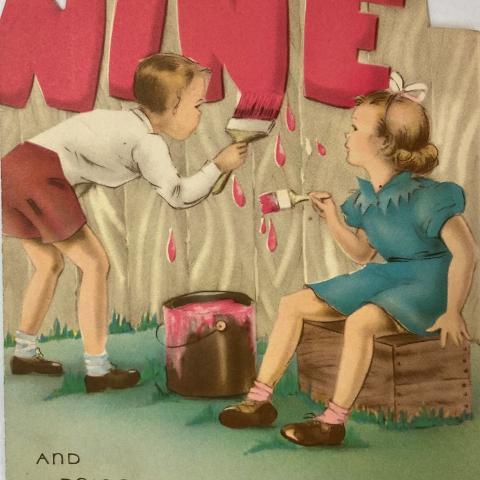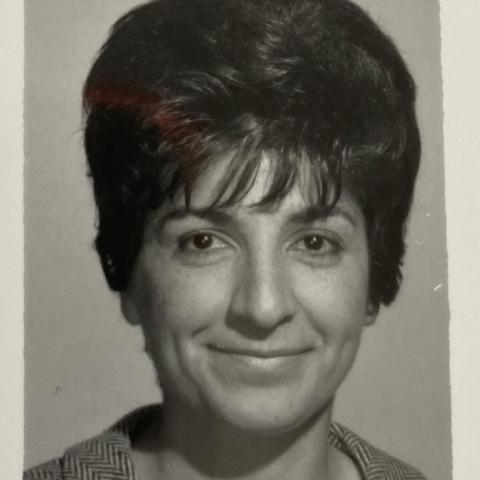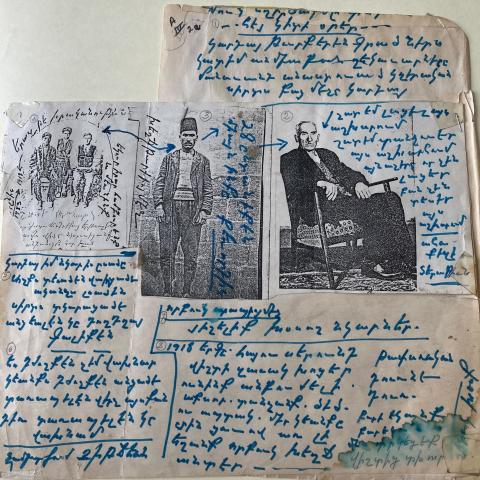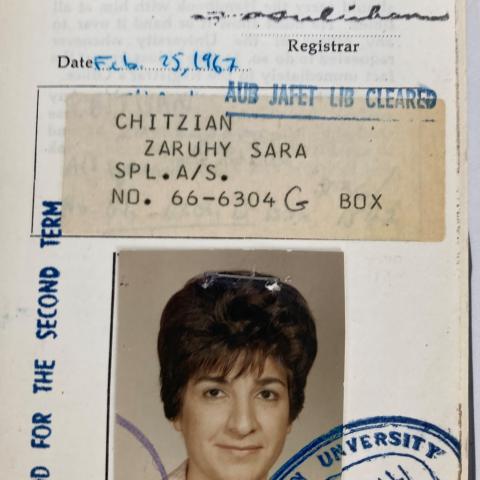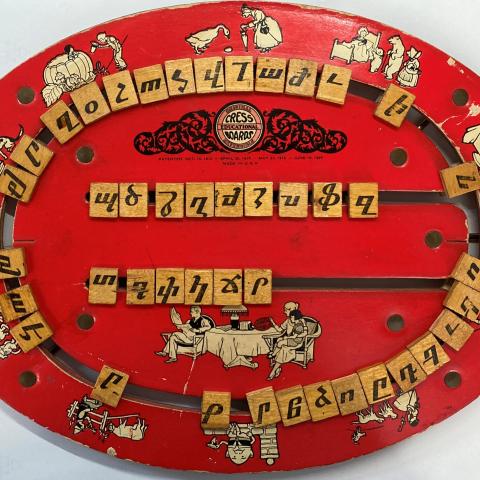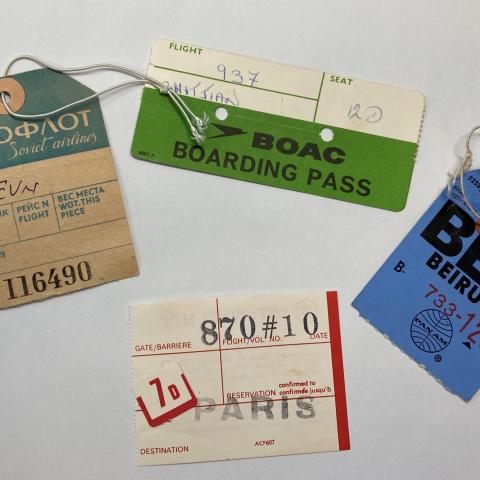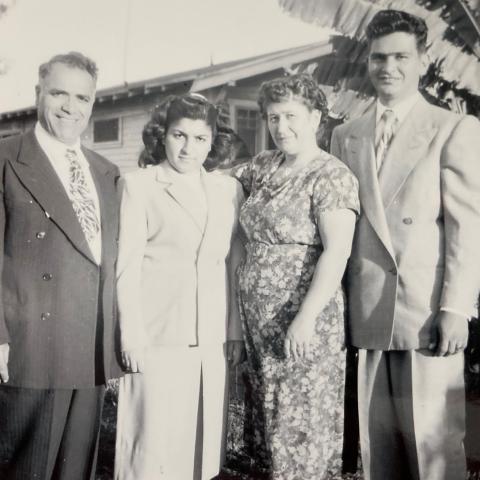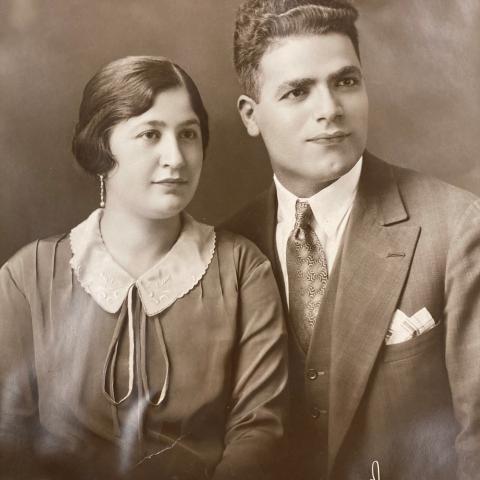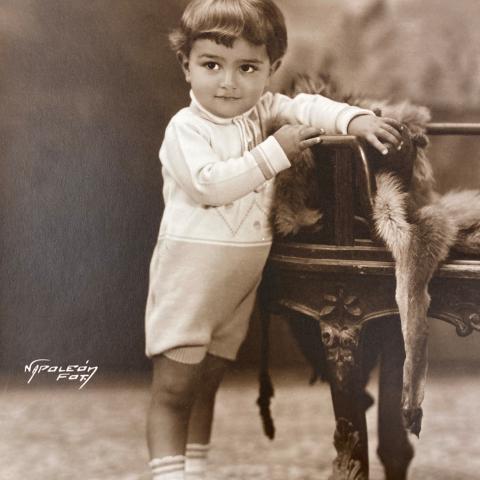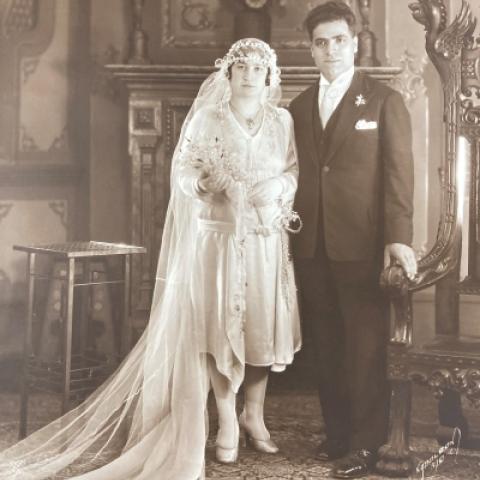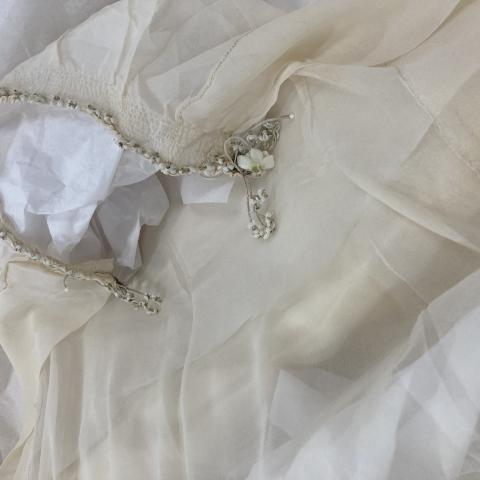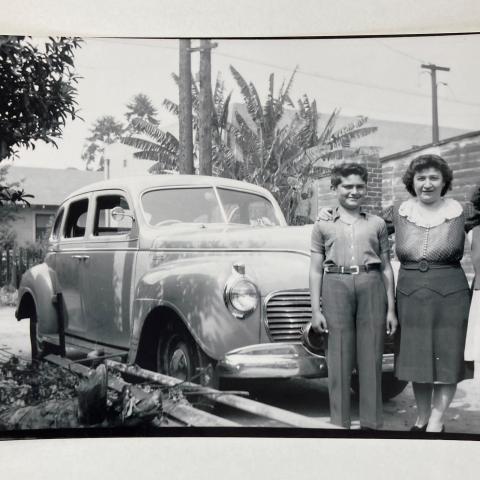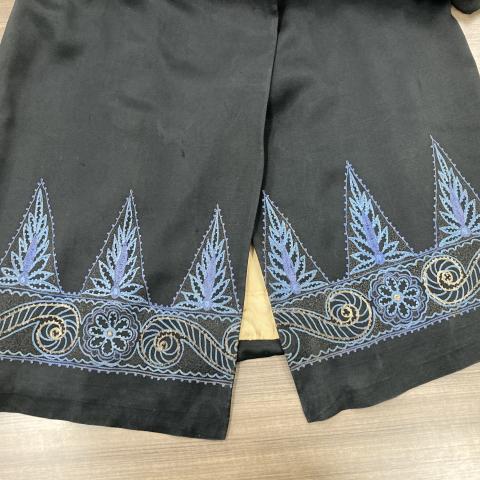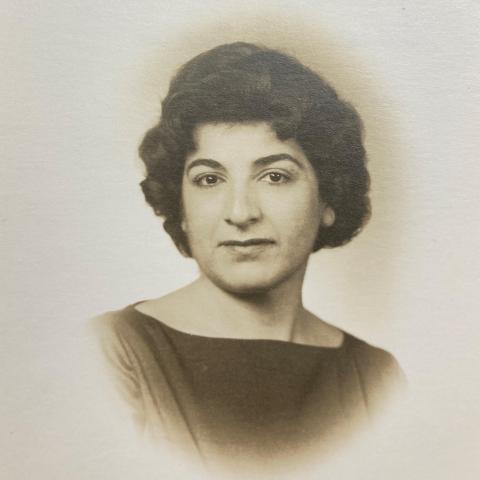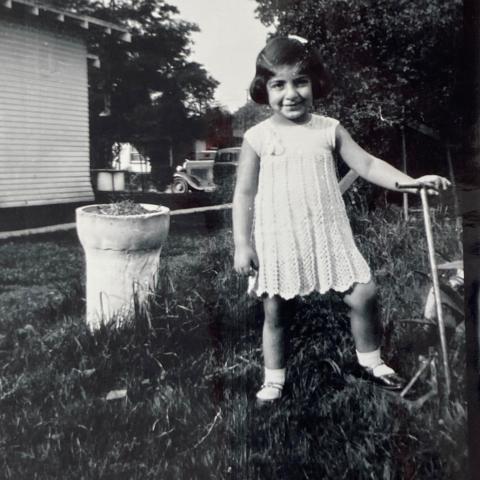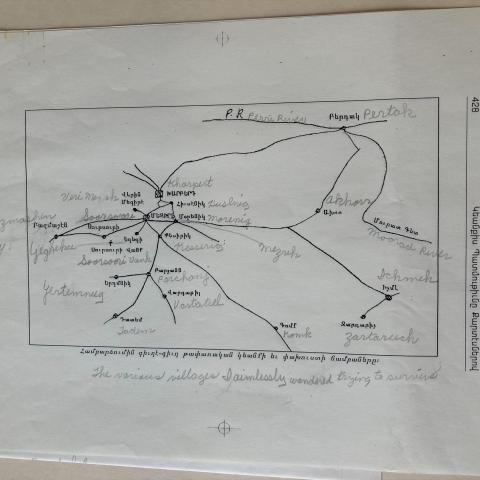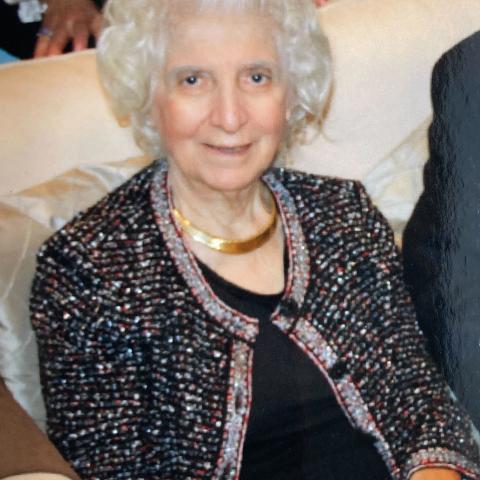Zaruhy “Sara” Chitjian Collection
by Claire V. Gordon, Archivist, CSUN Special Collections & Archives - April 11, 2023
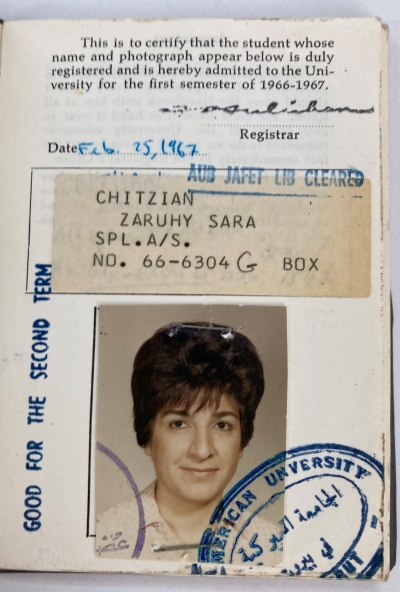 Family memories that are made within a diaspora are all the more precious. This is especially true about the materials housed in the newly processed Zaruhy “Sara” Chitjian Collection, which documents the Armenian genocide survival and immigrant experiences of Hampartzoum “Harry” and Ovsanna Piloyan Chitjian. The Chitjian Collection is an in-depth and intimate portrait of endurance, renewal, and legacy as told through a family archive created by their daughter, “Sara” Chitjian, and her passion as an educator and first generation Armenian American.
Family memories that are made within a diaspora are all the more precious. This is especially true about the materials housed in the newly processed Zaruhy “Sara” Chitjian Collection, which documents the Armenian genocide survival and immigrant experiences of Hampartzoum “Harry” and Ovsanna Piloyan Chitjian. The Chitjian Collection is an in-depth and intimate portrait of endurance, renewal, and legacy as told through a family archive created by their daughter, “Sara” Chitjian, and her passion as an educator and first generation Armenian American.
The collection grants us an intimate peek into the early lives of the Chitjian family with well-preserved photographs, clothing, and artifacts, as well as copious letters and greeting cards. Some of the correspondence in the collection, dating from 1914 through the 1990s, consist of original letters between Hampartzoum and his brothers, and a few from his father written shortly before the start of the genocide. Sara invested in translating all of the brothers’ letters, as well as transcribing and translating Harry and Ovsanna’s oral histories.
A sizable portion of the collection also documents Sara’s experience as a first generation Armenian American, child of survivors of the genocide, and LAUSD educator. She preserved her personal perspectives in her own reflective writing, as well as her after-school program curriculum and dramatic events with photographs. The collection also allows you to follow Sara’s interest in the academic rigor of Armenian studies and her philanthropy related to furthering that work.
Sara Chitjian was a teacher in the Los Angeles Unified School District for 34 years. During her teaching career she was a constant advocate for ethnic and bi-lingual instruction districtwide and persistently fought for the recognition of the Armenian culture and their experience of genocide. This work culminated in her much lauded and popular after-school Armenian culture classes that brought scholarly in-services, interviews with genocide survivors, and student-driven dramatic presentations to enthusiastic 5th and 6th graders and their parents.
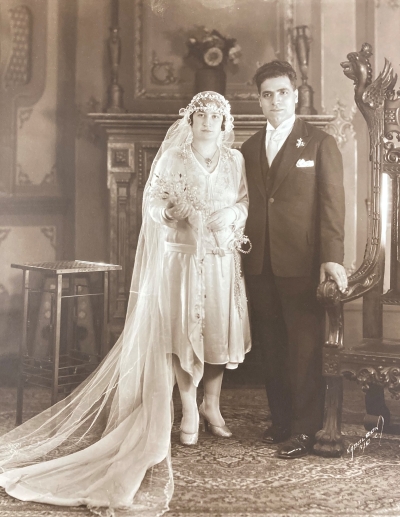 Her father, Hampartzoum, assisted sometimes in her after-school programs; visiting her classes, showing the students how to write in Armenian script, and telling them about his experience of surviving the genocide. The students’ interest and enthusiasm for his story of survival inspired Hampartzoum so much that he soon started a daily practice of writing to record his memories. These writings would later become the foundation of his memoir. It was also during this time that scholars began to reach out to him and Ovsanna asking to record their oral histories. Multiple interviews were conducted over the next twenty years. All of the oral history interviews are preserved in the collection as video and audio recordings, and transcripts, in both Armenian and English.
Her father, Hampartzoum, assisted sometimes in her after-school programs; visiting her classes, showing the students how to write in Armenian script, and telling them about his experience of surviving the genocide. The students’ interest and enthusiasm for his story of survival inspired Hampartzoum so much that he soon started a daily practice of writing to record his memories. These writings would later become the foundation of his memoir. It was also during this time that scholars began to reach out to him and Ovsanna asking to record their oral histories. Multiple interviews were conducted over the next twenty years. All of the oral history interviews are preserved in the collection as video and audio recordings, and transcripts, in both Armenian and English.
After the death of her mother, Ovsanna, in 1998, Sara began recording and preserving her family’s memories in earnest. In 2001, She and her father founded the Harry and Ovsanna Chitjian Family Foundation to preserve the collection of family materials and manage their legacy. It was then too, that Sara began to help her father write his memoir. Sara used Hampartzoum’s daily writings, as well as her parents’ oral histories, and correspondence between the Chitjian brothers to form the bulk of his memoir, A Hair’s Breadth from Death. She published A Hair’s Breadth a few months after Hampartzoum’s death, at the age of 102, in 2003. Many of the materials in the Chitjian collection contributed in some way to the creation of the memoir.
For Sara, the memoir became an opportunity to increase awareness about the genocide and support for research in Armenian studies. She used the ample resources of her family’s successful real estate business to organize and contextualize her father’s story, as well as her own. The Chitjian Collection therefore is a wonderful combination of raw materials for a memoir, and Sara’s own personal story of life as an Armenian American living and working in Los Angeles for decades.
Sara digitized a representative sampling of the content of the collection and placed it on the Chitjian Foundation website which is archived here.
Image Gallery
Post tagged as: special collections, archives, international
Read more Peek in the Stacks blog entries